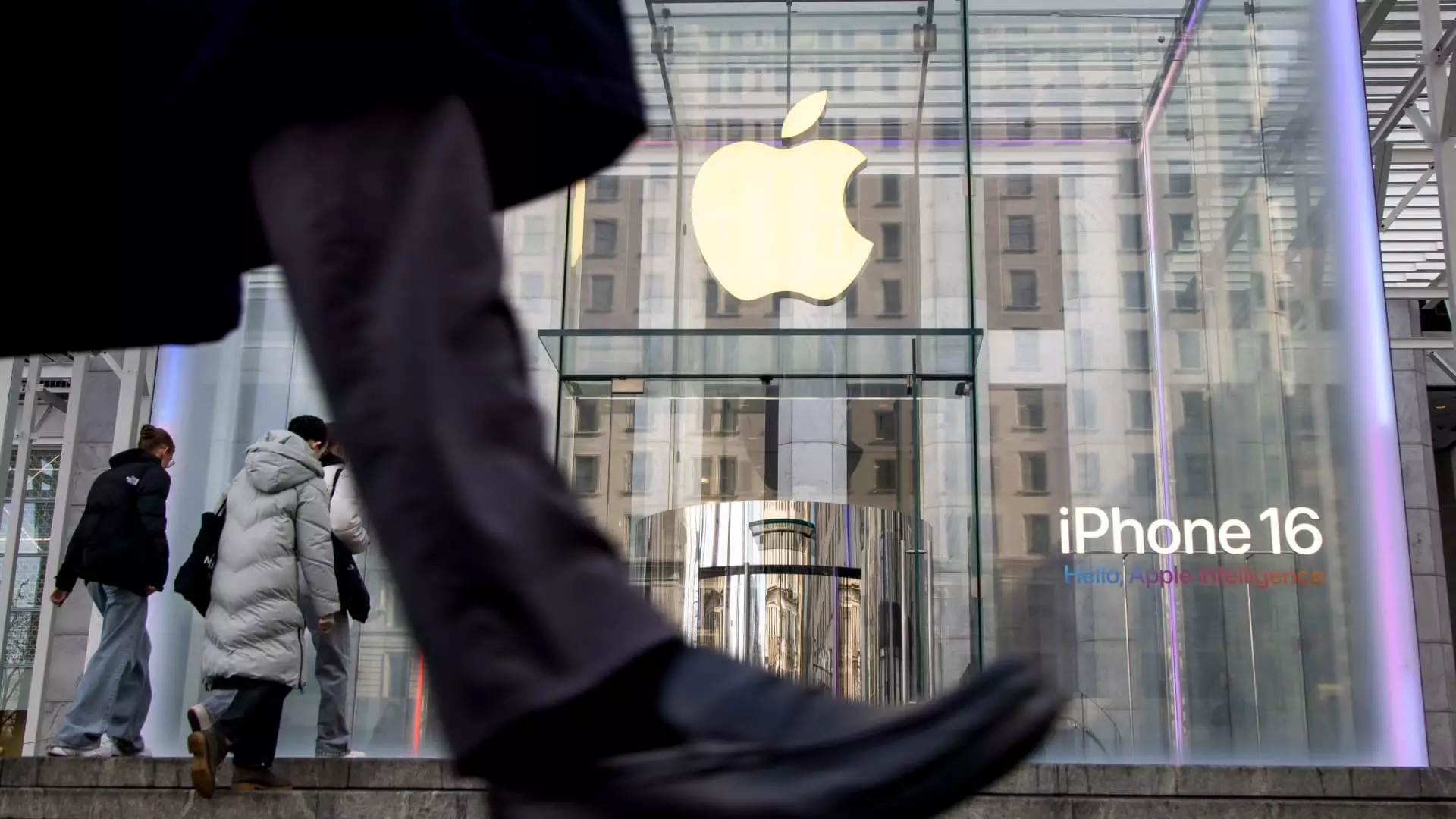In the tumultuous economic climate we find ourselves in today, a staggering 85% of Americans express genuine concern over the impacts of tariffs on their wallets and overall financial well-being. This isn’t mere anecdotal evidence; rather, it is a clear cry for help from consumers who are feeling the double pinch of rising costs and uncertainty. The implications of these tariffs are not limited to overpriced goods; there is a creeping anxiety about looming recessions and disruptions that could shake the very foundation of American prosperity.
Consumer sentiment, according to a recent University of Michigan survey, has plummeted over 30% since December. This significant decline indicates that people are not only worried but are indeed feeling the effects of a trade war brewing on the horizon. The emotions reflected in these numbers should be enough to alarm policymakers: our confidence plays a vital role in economic sustainability. With a worrying deterioration of consumer confidence, businesses may find themselves in precarious positions, leading to a self-fulfilling prophecy of slumping sales and economic slowdowns.
The Real Cost of Tariffs
A sharp focus must be placed on concrete figures when discussing the financial ramifications of tariffs. The Budget Lab at Yale University estimates that the average household could lose up to $3,800 a year due to these trade policies. That is not just an abstract figure; it’s money that could go toward education, travel, healthcare, and, quite frankly, daily necessities. As families wrestle with inflated prices for groceries and essential household items, the impact of tariffs is palpable and deeply troubling.
Moreover, the consumer landscape is shifting dramatically. A recent NerdWallet survey indicates that many individuals plan to adjust their spending habits significantly over the next year. This isn’t just idle speculation. We are witnessing a notable pivot towards savings—45% of survey respondents plan to cut back on non-essential purchases. This behavior is symptomatic of a broader unease gripping the population. As Kimberly Palmer of NerdWallet aptly points out, “These tariffs are adding to that financial stress and basically forcing people to make some difficult decisions.”
Balancing Act: Saving vs. Spending
The decisions families are now forced to make underline the precariousness of financial planning in the current landscape. Should they save for emergencies or pay down debts? Should they prioritize retirement savings, or must they simply focus on survival in the face of inflation? Financial analysts like Stephen Kates emphasize the critical need for households to build an emergency fund—at least three to six months’ worth of essential expenses—before tackling other financial goals. This marshalling of funds can help secure families from the unforeseen calamities that rising tariffs may exacerbate.
Yet, even within tight budgets, the “debt avalanche” approach remains a practical strategy. By focusing on paying off high-interest debts first, consumers can free up future income, bolstering their overall financial health. If only a fraction of Americans practiced this, the wave of anxiety surrounding tariffs could begin to subside as households find more financial freedom.
The overarching context of the current tariff strategy is not just about the immediate financial burden; it’s about the long-term viability of American economic interests. It is imperative that consumers remain vigilant and proactive in their financial planning. But it is also equally important to hold lawmakers accountable for their part in creating a commerce environment that safeguards American livelihoods.
So while 85% of Americans are grappling with anxiety due to impending tariffs, perhaps a new consciousness is required—an awareness that prioritizes financial literacy, resilience, and preparedness. The real threat isn’t just the tariffs themselves; it is the indifference toward the financial literacy gap that risks plunging households into deeper turmoil. The shift towards responsible spending and the prioritization of savings over unnecessary purchases has never been more vital if we hope to weather the storms brewed by uncertain economic policies.

